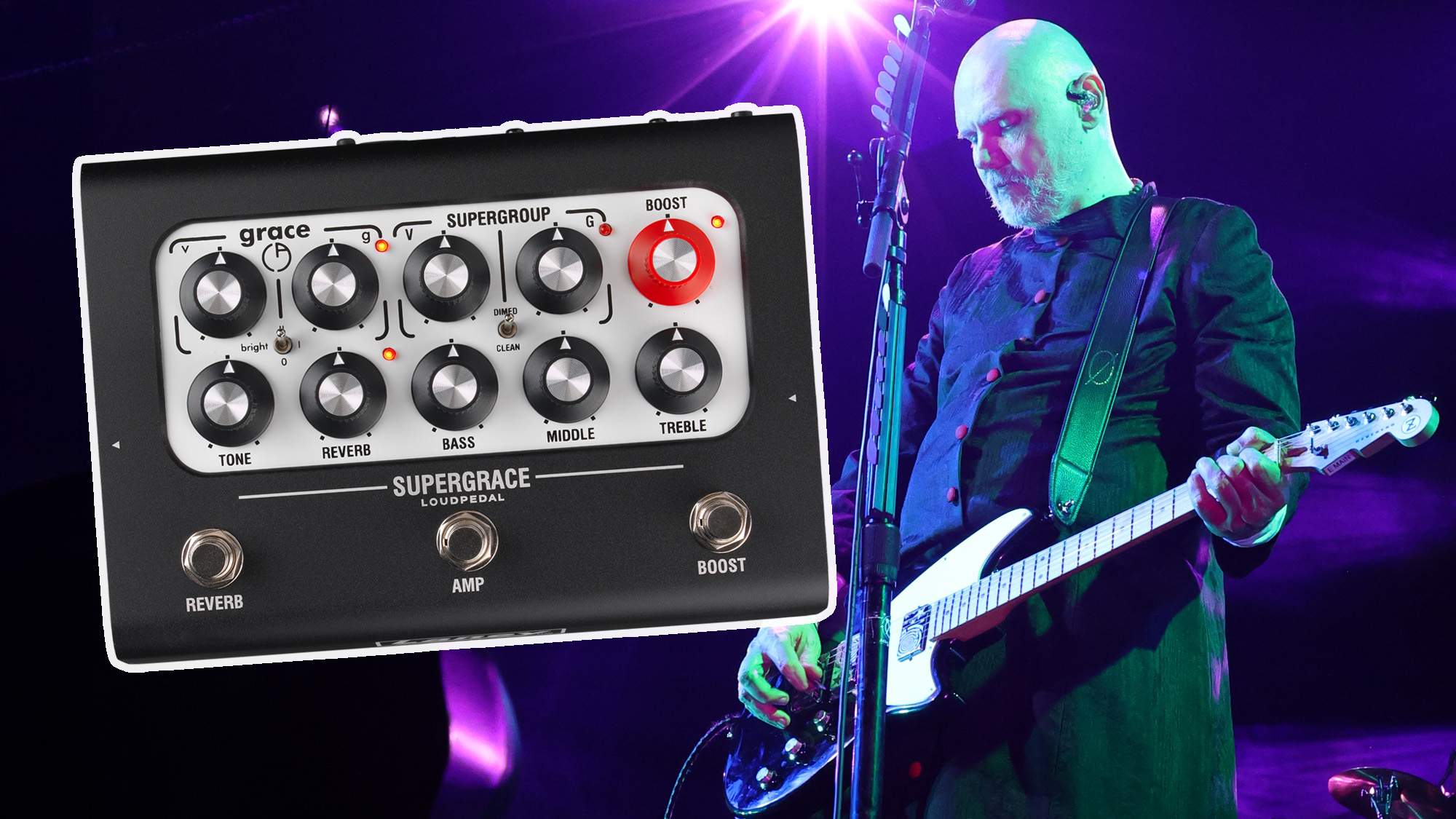"When I got my first signature, I was probably too young. I was really excited, but I also felt maybe a little bit of imposter syndrome – I don't know if I'm a real guitar player": Benji Madden on the gear that made him, and his forthcoming signature Suhr
The Good Charlotte guitarist lifts the lid on the secrets of his tone, the multi-effects unit that he thinks is a “game-changer,” and why he was “too young” for his first signature model
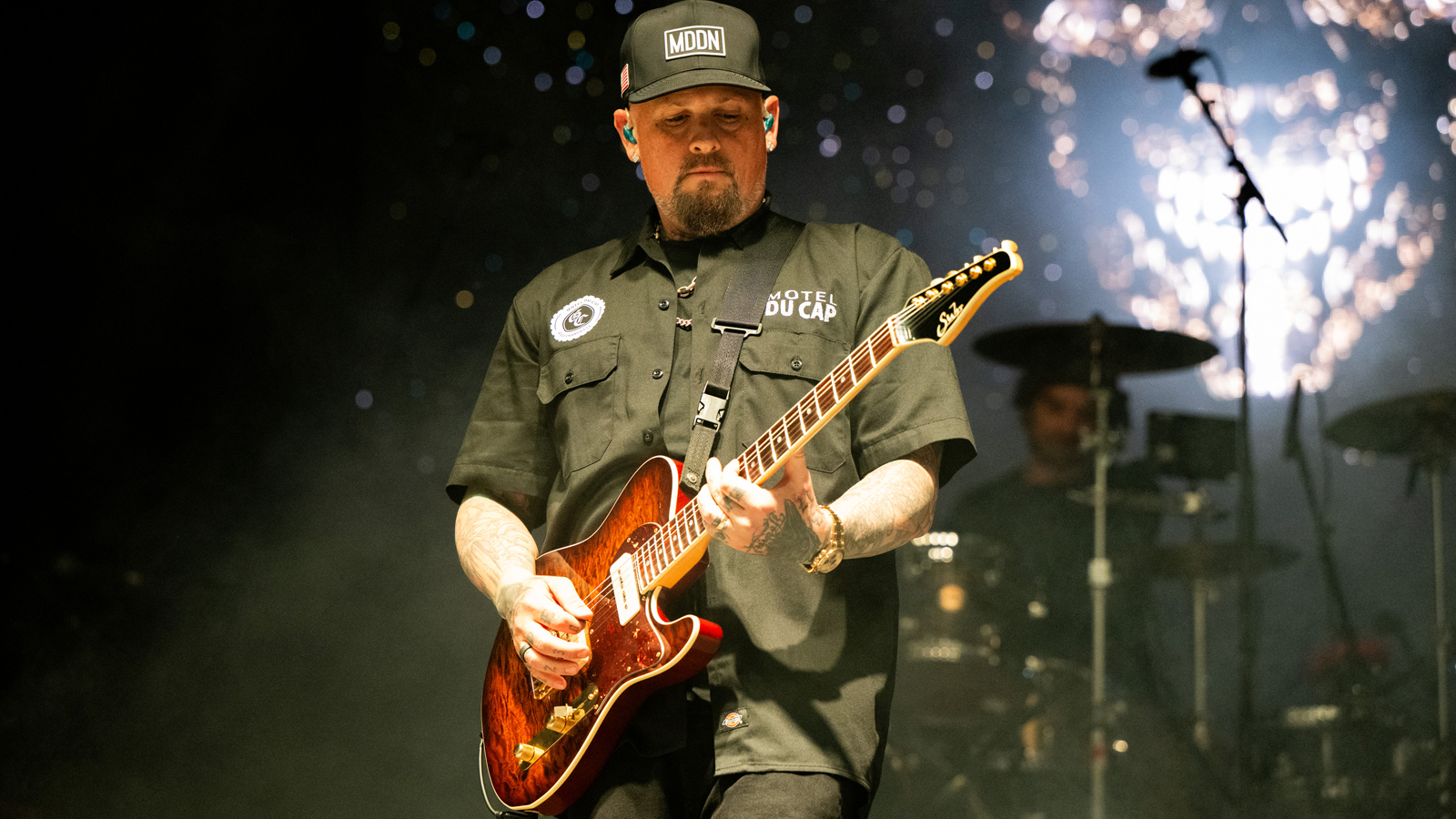
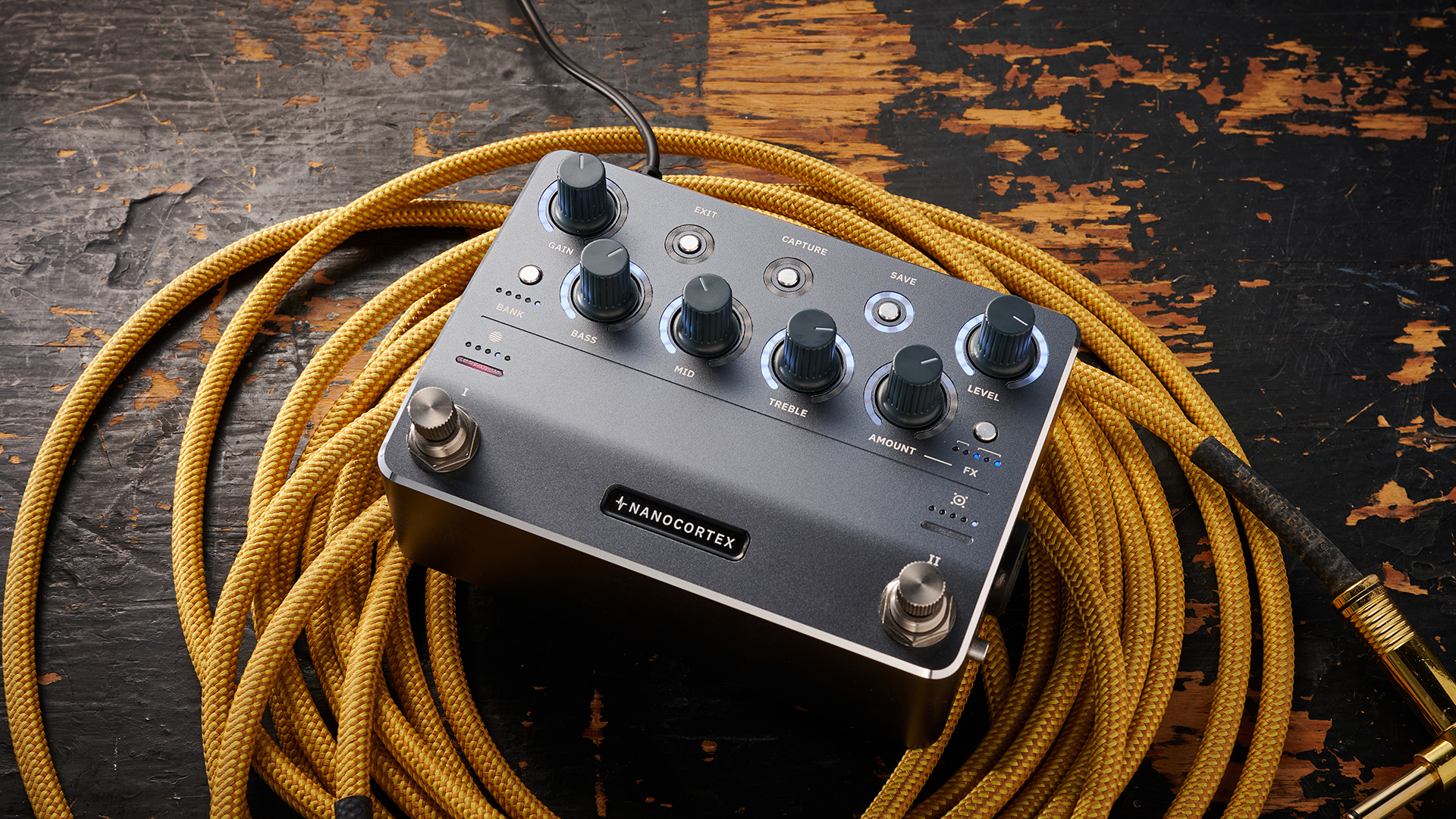
Neural DSP Nano Cortex: Benji tells us he is using this unit at home and on stage with Good Charlotte.
Sterling By Music Man Cutlass: A budget way to get very close to the tone of his discontinued signature Music Man.
Squier CV '70s Tele Thinline: The Thinline has long been a favorite of Benji's, and this one is very wallet-friendly.
Soldano SLO-Mini: Since the beginning, Benji has relied on the overdrive of a Soldano; this uber-cheap, solid-state option is ideal for those on a budget.
"Sorry, I'm late, I needed to finish off my morning drop off," says Good Charlotte's guitarist and chief songwriter, Benji Madden, as he beams in from his home office – proving that even if you are a world touring rockstar, you don't get a day off from the school run. We caught up with Madden hot off the heels of the release of Good Charlotte's eighth studio album, Motel Du Cap, the first in seven years.
We wanted to delve not only into the creative process behind the new album, but also into the gear that has shaped his illustrious career. Benji opens up about his unique approach to tone, how a touch of his uncle's generosity played a significant role in crafting the type of player he would become, declares his undying love for Suhr guitars, and why he feels now is the right time for another signature model.
Good Charlotte has built a career on crafting memorable pop punk anthems, with mega hits such as Lifestyles of the Rich & Famous, Girls & Boys, and The River. Speaking about his guitar style, Madden gets candid about not being a guitar god, but being more than happy with his ability to craft memorable melodies. "I'm a melody junkie. So to me, every lead has to be a hook too, or I get bored. [I came up] in the era of guitar gods – Tom Morello, Slash, we could go on and on. Obviously, I wasn't one of those guys. I'm still not," he says with a smile. "I've never seen a vision of myself rising out of the mist, where I'm just shredding, that's just not me," he admits. "It's all just been in service of the song, which I think can be a major plus."
What’s your earliest guitar memory, do you remember your first guitar?
"Yeah, it's a good one, actually. So I started playing guitar basically when we started the band. And I got a guitar as a gift from a nice man who went to church that was helping my mom out because she didn't have Christmas gifts. He was in the church band. He gave me a bunch of things, but one of them was a guitar. I still have it – it was called a GTX.
At the time, I was playing through this little karaoke machine
"I have no idea who makes the GTX [laughs]. Maybe it's one of those little, cheap companies or something, but anyway, that was the guitar that I started playing on. It came with a little book of church hymn songs. I learned three chords and that was it, I threw the book away and just started making up my own songs – I didn't even know it was called songwriting.
"At the time, I was playing through this little karaoke machine. I don't know if you remember back then, but everything was cassettes. It had two cassette spots and two mic ports. We got hold of a mic. I could plug my guitar in, and Joel and I would sit there and write songs and record them on the thing – and that's how we started. We obsessed for hours and hours in our room, that was how we started. That was the beginning of the guitar journey, which quickly became an obsession.
All the latest guitar news, interviews, lessons, reviews, deals and more, direct to your inbox!
"I didn't have the money to buy a guitar for a long time, but when we started the band, our original drummer's dad had an extra amp, and he's like, ‘I'll sell it to you for 150 bucks’ or something. So, I got that, it was a little Fender combo amp. So I got that, and I was still playing on my GTX, and I had put some stickers on it, you know, and tried to make it look cool for me."
Do you remember the first piece of gear you bought that made you feel like, “Okay, I’m really a musician now”?
He also sent me a 1968 Fender Thinline Tele that he had built – and that’s the guitar I used on our first album.
"My setup took a big step up when my uncle in Alabama found out that I had started a band, and was really into it. He is a badass guitar player. I mean, he's one of the best players I've ever heard. He's one of these little old country dudes who plays in blues bars and stuff. And he's a badass. He sent me, to this day, probably the only gear I ever needed – because I still play it.
"The actual amp he gave me, I keep in the studio. But I've got a few more of them over the years. He sent me a Soldano Hot Rod 100 that he had fixed a couple of times.
"He [also] sent me a 1968 Fender Thinline Telecaster that he had built – and that’s the guitar I used on our first album. I put that guitar away for many years, cause I was afraid that it would get damaged on the road. So I either kept it in my studio or I put it in storage. A couple of years ago, now, when we started talking about gearing back up, maybe after we did When We Were Young [festival], I got it back out.
"I was like, ‘Why am I playing guitars that I don't love and keeping guitars I love in storage?’ Why am I doing that? I've always been afraid that it'll get damaged or someone will steal it. I said, 'You know what, man, fuck it! I need to play guitars live.’ So, I got that guitar out, and man, it's so crazy how you plug your guitar in through an amp and it sounds like that record. So, that was my first real gear setup that I think was mine. My sound, my thing – what resonated with me."
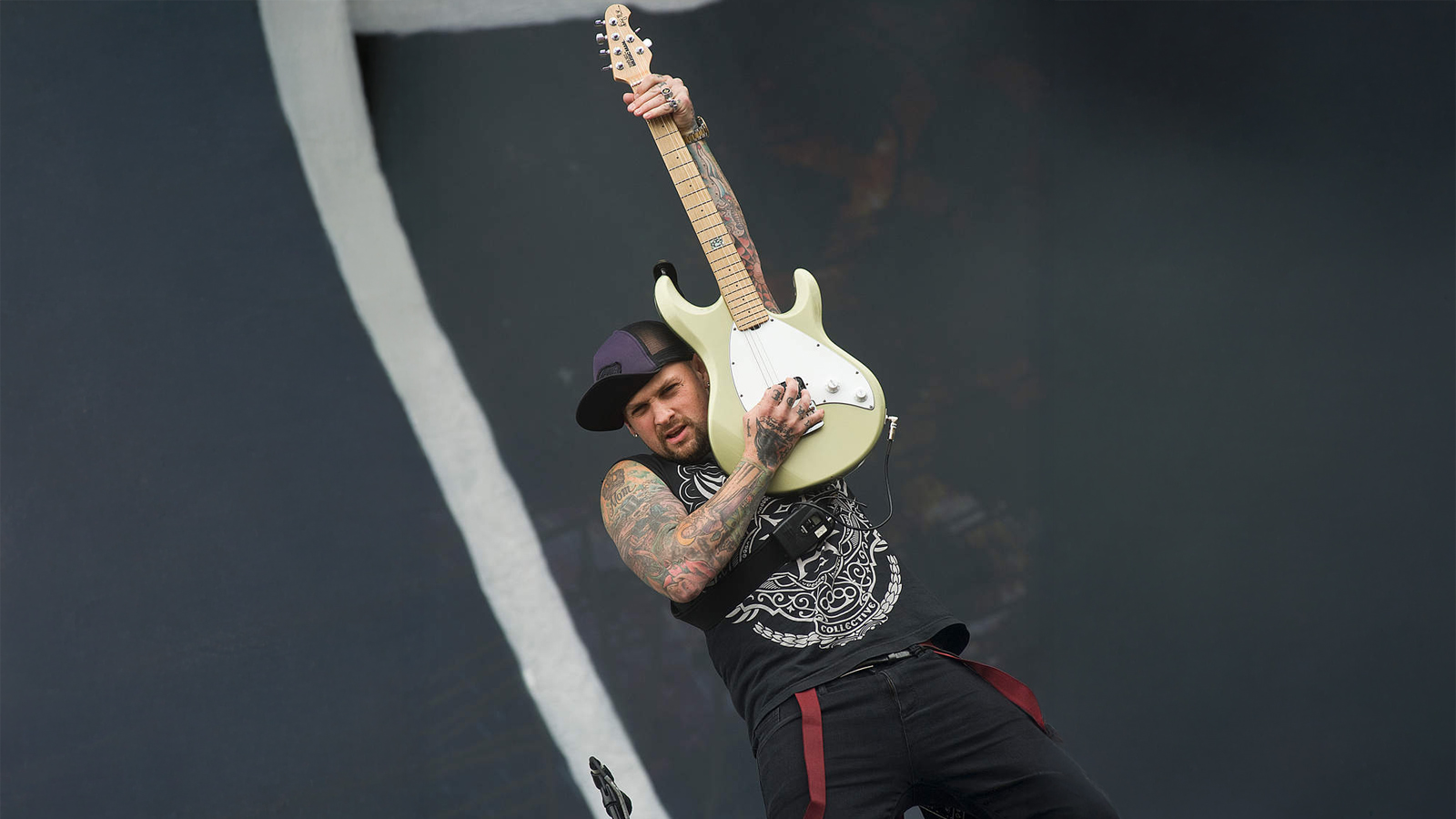
Around 2004, you received your first-ever signature model from Music Man. Can you remember how that felt at the time, and what first drew you to the brand?
I was really excited, but I also felt maybe a little bit of imposter syndrome – I don't know if I'm a real guitar player
"We were on the road with MxPx. We did a US tour with them. It was the first time any company came out and said, ‘Hey, we want you to play for us. We want to give you a signature model.’ So I did a signature model with Ernie Ball. It was a Music Man Silhouette. You know, it's interesting. Maybe I felt conflicted about it because I was still such a young guitar player. I mean, I had only been playing guitar for seven or eight years. You know, I started playing guitar when we started the band. I was conflicted about it because I still didn't know that much about playing guitar. You’ve got to remember there was no internet really back then. There was no social media. So in order to find stuff, you really had to scour the bookstores and just go to shows and talk to the guitar players. So I was a bit shy about it. I was excited about it, I wasn't going to turn down the opportunity, and also someone was taking an interest in me.
"I was really excited, I was very grateful, but I also felt maybe a little bit of imposter syndrome – like, I don't know if I'm a real guitar player, I just started playing. When I got my first signature, I was probably too young. They saw us. We were getting really popular, kind of blowing up. I wasn't going to pass it up. It felt like a great opportunity, but I also felt at that time I was such a new player – it was just a whirlwind. I was super proud of it. I really liked it.
"Now I don't even know if I could play that guitar. It's a bit smaller. I've kept a few just as relics, you know? And, I think I'll always remember it as a very sweet moment of my career. It was an accomplishment as a young guitar player."
I know you’ve moved away from Music Man in recent years, and I see you playing mainly Suhr models. What prompted you to make the switch?
"Where that evolved to, once I had a little bit of money, I kind of got into some vintage guitars, and I found a couple of vintage guitars that I still record tons of stuff with. I got a ‘57 Gretsch hollow body. I've got a Gibson ES-330 hollow body that’s a really special guitar. I've got a handful of things. But the guitar in 2009 that changed the game for me again – and that was a Suhr [Classic T] – with their version of P-90s. And they don't really do that on guitars.
It felt good, and it sounded good. So, I got that guitar, and it just became the only guitar I could play
"I found one that they had built, and it's got a little thing. I found it in a vintage shop – it had just come out of the NAMM show. At the time, it was $3,000, and I was like, ‘Okay, cool, let me check it out.’ It felt good, and it sounded good. So, I got that guitar, and it just became the only guitar I could play.
"I put [the guitar] in my studio, and we have so many bands at our studio coming through, making records, everybody from Bring Me The Horizon and All Time Low to Billy Idol, Pale Waves, Architects, and everyone in between, and that guitar has become a favorite of everyone who goes in the studio.
"It’s my Bengal [Classic T]. I found it in this shop. I had never played a Suhr guitar. And it's been on everything that I've done and a whole bunch of other stuff. It's a very special guitar. I also think guitars pick up vibes. That guitar has lived lifetimes."
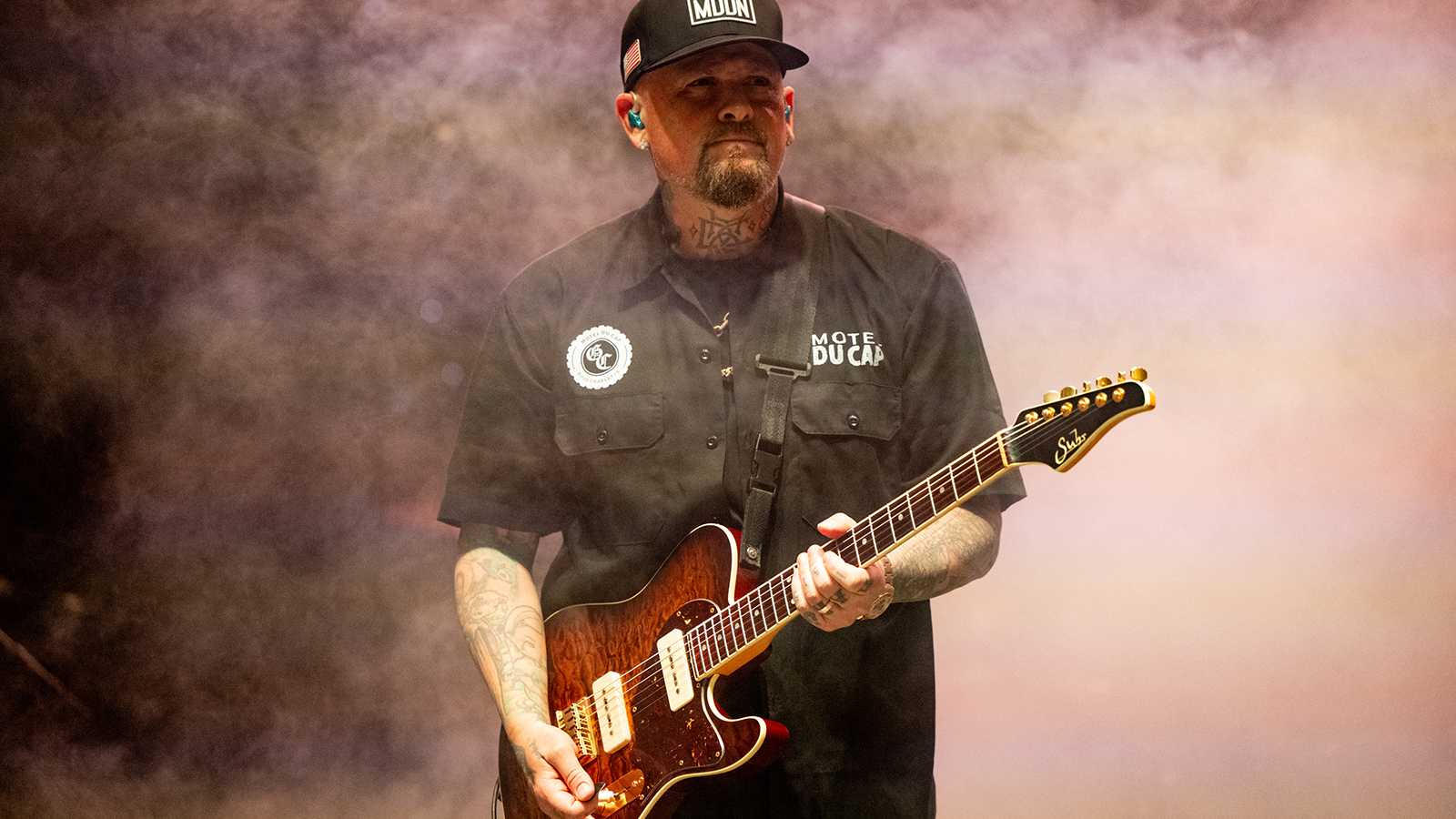
Are there any plans to work with Suhr on a signature model?
"So now I'm a Suhr artist – it never occurred to me to just call them [laughs]. After I found that guitar, I became obsessed with Suhr. Every couple of years, I’ve gotten another one – I would always keep my eye out for another beautiful Suhr.
"To me, they're like old cars, you know, they're just beautiful. Now, they're making a signature model for me, which is going to have double P-90s – a really simple setup, just exactly the way that one is. I'm very excited about that. Now I'll be able to keep that one at the studio or keep it in my home office. My Bengal [Classic T] and Thinline Tele, which my uncle gave me, are my two prized guitars. I have some other really cool guitars, but I'd be bummed if I lost them.
"I fucking love these guitars. I can't put it down. This is the only guitar I want to play. I love it so much. That was 2009, so it's 2025. So that's 14 years. Well, I just signed on with these guys three or four months ago. So now I'm getting to have the experience, which is actually more rewarding than the first [signature run].
"So now, after playing these guitars for, you know, 14 years and then connecting with the company and telling them about how much I love the guitars and actually having them say, ‘Oh, well, we actually don't have any players like you on our roster. You actually fit a different category.’"
I wanted to ask about your home practice rig. What are you using when you are playing at home – any little gadgets or apps you rely on?
So, I got a Neural unit, actually, the whole band's got them now – technology's insane
"Mainly just an acoustic guitar. I've always kind of done acoustic guitar. I think it's a good workout, too. When you switch over to an electric guitar, it's much more fun with all the different dimensions you can play with, not just the guitar.
"The other thing is the Neural [DSP Quad Cortex]. I got a Neural unit, which is an endless kind of fun, you know? I was playing with Luke Combs, who's a good friend of mine. He's got a badass band – I really, really love the players in his band. I saw them using it. We went and did a thing, I went out and played a song with them. And they said, ‘Oh yeah, we have your setting all set up.’ And I'm like, ‘Really? Okay.’ So we didn't even have to sound check – it blew my mind.
"So, I got a Neural unit, actually, the whole band's got them now – technology's insane. So that would be the tool at home. But I'm keeping it really simple."
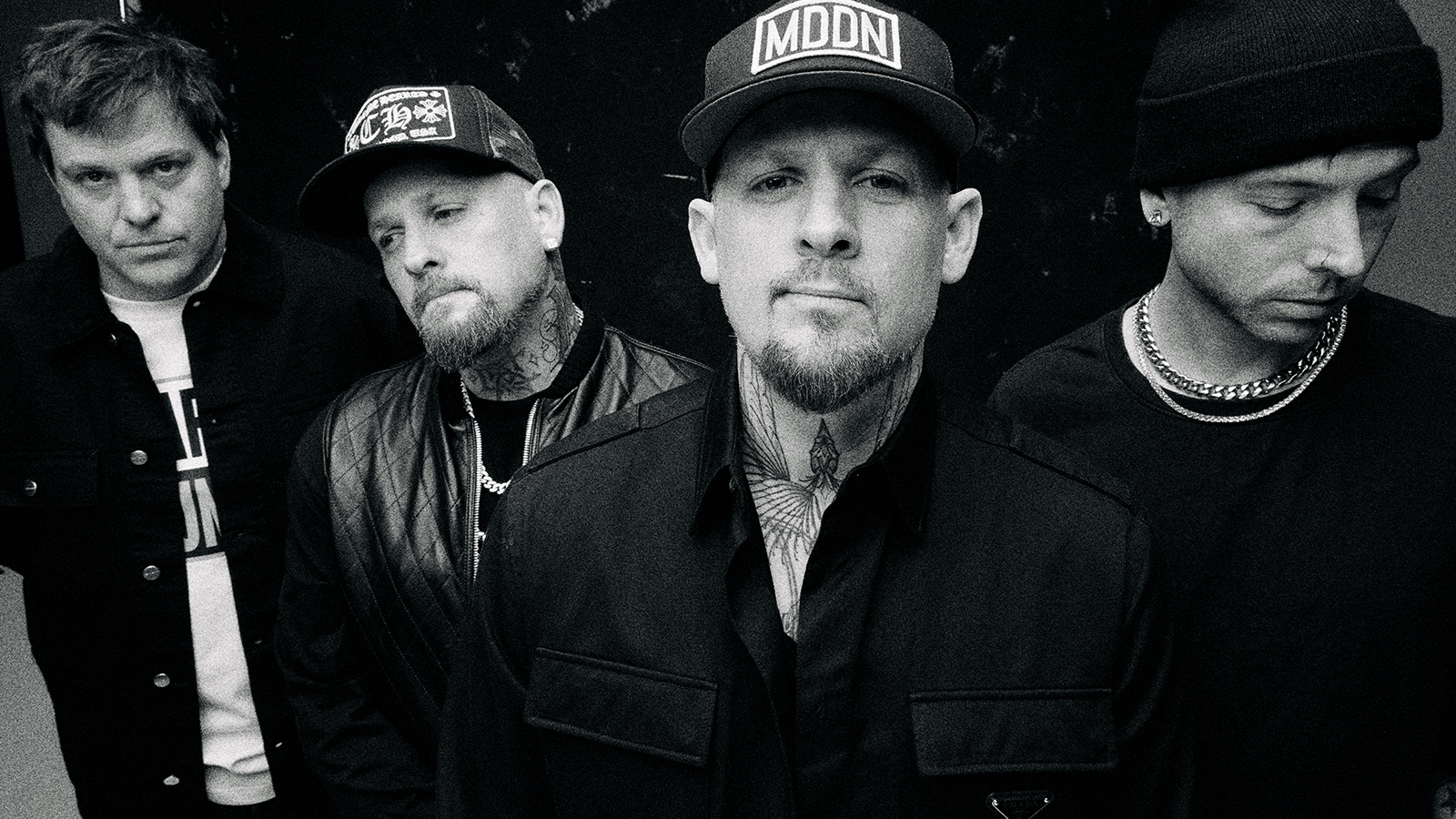
Moving on to the new Good Charlotte album, Hotel Du Cap. To me, the record feels like your entire career compressed into a single album. Was that a conscious decision when writing it?
"No, but you nailed it. So when we made this record, it was an experiment. The experiment with this record was we kind of got the time to just find out what our real value was – just as humans, as dads, as husbands, as friends, not just being in this band.
"Let's go in and just do one and see if anything comes out. Let's just see what it feels like, but let's go in with no idea of what we want the result to be. Just go in and see if we can play around and see – we can always delete it. We can always hit delete.
"I really, really wanted to work with Zakk Cervini and Jordan Fish together. That was my dream – since I met both of those guys years ago, before Jordan actually called himself a producer. He's got a way of being in the band. He's got a way of just going ‘This is my band.’ So creative.
It started to get fun and more fun and more fun – and it felt almost like our first album
"It’s usually just me and Joel, and then we can bring the guys in once we have [something written], but getting Zach and Jordan together, I was super excited. Probably before the end of the first day, we had Rejects pretty much done the way it is now. You know, it's just getting excited [in the studio], feeling like kids, feeling like teenagers.
"After that, it was like, 'Shit, man, I think we’ve got a record in us. I feel like this wants to keep going.' By the way, we didn't write 20 songs. I think we wrote 15. There are maybe two songs there that aren't on the record. But we didn't even finish them. We start a song and say, 'Yeah, let's take this' – and that was the experiment.
"We weren't even worried about putting it out. It started to get fun and more fun and more fun – and it felt almost like our first album. It really felt like a reset. I think you can feel it emotionally. I think I feel like that when I listen to the record, I go, 'God, man, this is pure love in this record.'
"In the last six years, you know, one of the more life-changing events was having my father pass away. Now, our early records were all “angry at dad” records. Really deep.
"Becoming friends, reconnecting, healing old wounds, having our own relationship, and then him passing away. That in and of itself was something that we've unpacked and sort of dissected. When he died, I didn't want to write songs about it. I didn't know how I felt yet. My relationship with music came out of a time of anger. That's what drove me to pick up the guitar. I was a sad kid, you know."
Lastly, what advice do you have for beginners looking to start playing?
"You know, it doesn't matter what kind of guitar player you are. Everybody's different. My advice to kids who are starting to play guitars is just do things that are fun for you – and don't question why you gravitate towards certain sounds or certain things. Just do it.
"I think if you play guitar and you love it, one, you're going to get more out of it, two, people are going to feel it, and three, this is what life's about. So that's been a journey for me."
- Good Charlotte's new album, Motel Du Cap, is out now. For more information, head over to goodcharlotte.com.
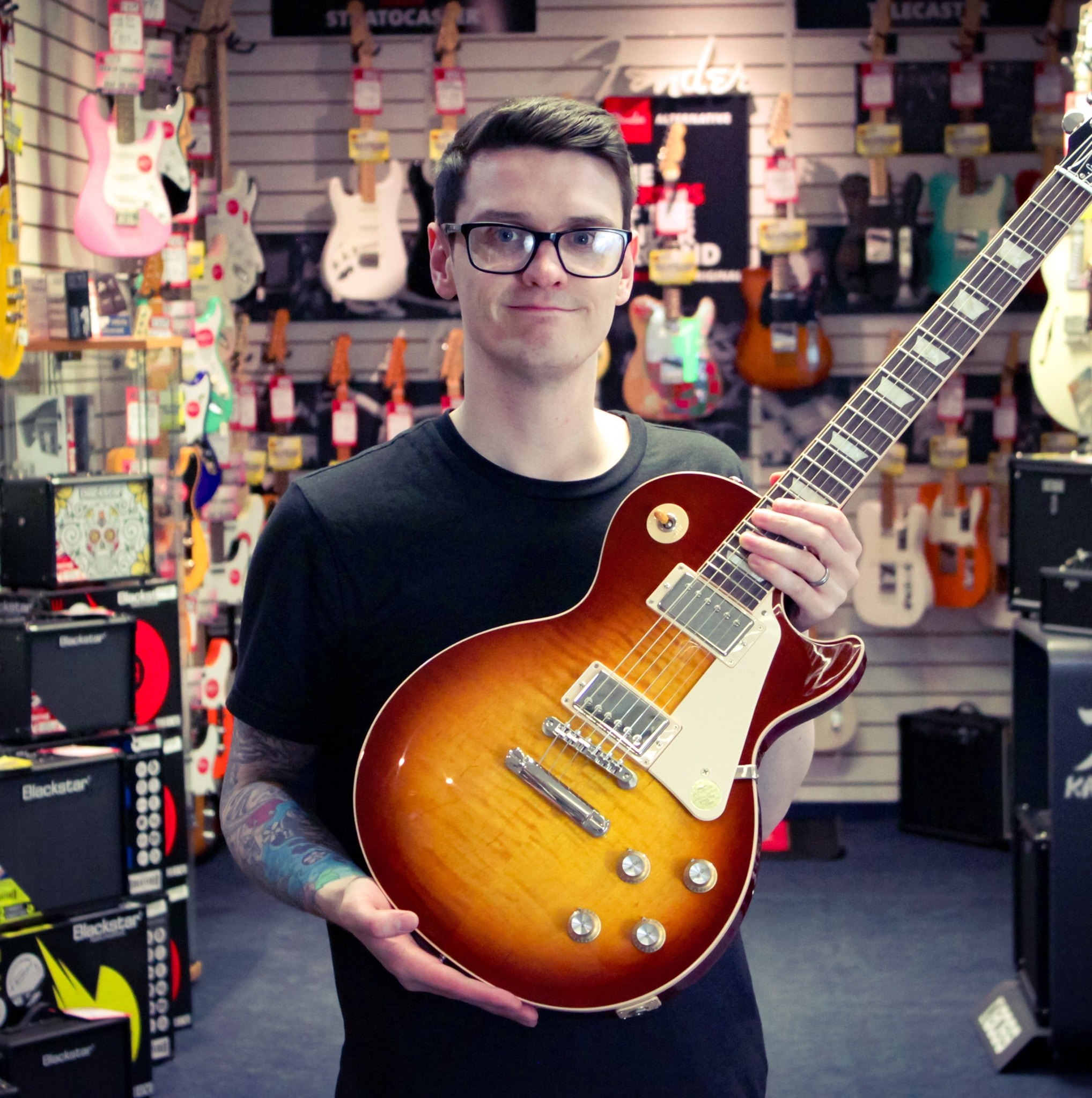
Daryl is a Senior Deals Writer at Guitar World, where he creates and maintains our 200+ buyer's guides, finds the best deals on guitar products, and tests the latest gear. His reviews have been featured in prominent publications like Total Guitar, Guitarist, Future Music magazine, and MusicRadar.com.
During his career, he has been lucky enough to talk to many of his musical heroes, having interviewed Slash and members of Sum 41, Foo Fighters, The Offspring, Thrice, and more. In a past life, Daryl worked in music retail. For a little under a decade, he advised everyone from absolute beginners to seasoned pros on the right gear for their needs.
Daryl is a fully qualified sound engineer, holding a first-class Bachelor's degree in Creative Sound Production from the University of Abertay.
You must confirm your public display name before commenting
Please logout and then login again, you will then be prompted to enter your display name.
